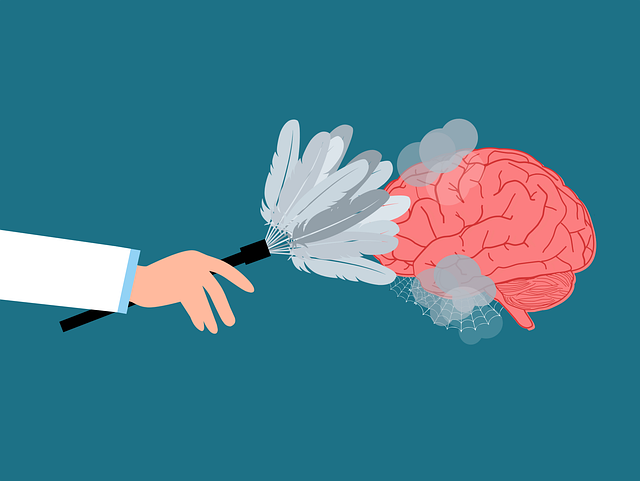Englewood Domestic Violence Therapy offers safe, structured group therapy sessions that enhance mental wellness by fostering connection, reducing isolation, and challenging stigma. Through clear ground rules, self-care practices like mindfulness, cultural sensitivity, and tailored coping strategies, they empower individuals to manage trauma and crises effectively while promoting long-term emotional healing.
Mental wellness group facilitation plays a pivotal role in fostering recovery and building communities. This article explores effective techniques for group therapy, beginning with creating safe spaces that encourage vulnerability. We delve into specific strategies proven successful, using Englewood Domestic Violence Therapy as a case study—a pioneering program demonstrating the power of group-based interventions in transforming lives. By examining these approaches, we aim to equip facilitators with tools to enhance mental wellness support.
- Understanding Mental Wellness Groups: Creating a Safe Space
- Facilitation Techniques for Effective Group Therapy
- Case Studies: Englewood Domestic Violence Therapy in Action
Understanding Mental Wellness Groups: Creating a Safe Space

Mental wellness groups serve as powerful platforms for individuals to connect, share experiences, and support one another in a safe and non-judgmental environment. Facilitating these groups requires creating a sanctuary where members feel comfortable opening up about their mental health struggles. This involves establishing clear boundaries, ensuring confidentiality, and cultivating an atmosphere of empathy and understanding. By fostering a sense of community, facilitators can help participants challenge the stigma surrounding mental illness, encouraging open dialogue and promoting self-acceptance.
Englewood Domestic Violence Therapy recognizes the value of group settings in enhancing recovery and reducing feelings of isolation. Through structured discussions and interactive activities, members engage in meaningful exchanges that facilitate personal growth and resilience. Moreover, these groups play a crucial role in burnout prevention strategies for healthcare providers by offering a space to share experiences, learn from peers, and develop coping mechanisms. Self-awareness exercises, integrated into the group dynamic, enable participants to delve deeper into their emotions, fostering self-care practices that are essential for navigating life’s challenges.
Facilitation Techniques for Effective Group Therapy

Group therapy sessions can be powerful tools for fostering mental wellness and recovery, especially in cases like domestic violence where support networks are vital. Effective group facilitation techniques are essential to creating a safe and inclusive environment at Englewood Domestic Violence Therapy. One key technique involves establishing clear ground rules, ensuring every participant feels heard and respected while promoting open communication. This sets the tone for a supportive atmosphere.
Additionally, incorporating self-care practices within group therapy sessions can enhance overall well-being. Encouraging members to share their coping strategies and offering guidance on burnout prevention strategies for healthcare providers present in the group, such as mindfulness exercises or stress management techniques, can contribute to a healthier dynamic. Cultural sensitivity is another crucial aspect; understanding and respecting diverse backgrounds and experiences ensures that everyone feels welcomed and validated, fostering genuine connections within the group.
Case Studies: Englewood Domestic Violence Therapy in Action

Englewood Domestic Violence Therapy offers a powerful example of effective group facilitation techniques in action. Through their programs, trained facilitators create safe and supportive spaces where individuals experiencing domestic violence can share their stories, process trauma, and gain valuable coping strategies. Case studies reveal that this approach fosters profound emotional healing and empowers participants to take control of their mental wellness.
By incorporating self-care routine development for better mental health and crisis intervention guidance into group sessions, Englewood Domestic Violence Therapy goes beyond symptom management. They equip clients with practical self-care practices tailored to their unique needs, enabling them to navigate challenges more resiliently. This holistic approach not only supports immediate crisis situations but also equips individuals with lifelong tools to maintain and improve their mental health.
Mental wellness group facilitation is a powerful tool, as evidenced by the success of initiatives like Englewood Domestic Violence Therapy. By creating safe spaces and employing effective techniques, facilitators can foster profound transformations within groups. The case study highlights how structured, supportive environments facilitate healing and growth among participants. Adopting these strategies can revolutionize mental health support, ensuring that individuals receive the care they need to navigate life’s challenges with resilience and hope.











